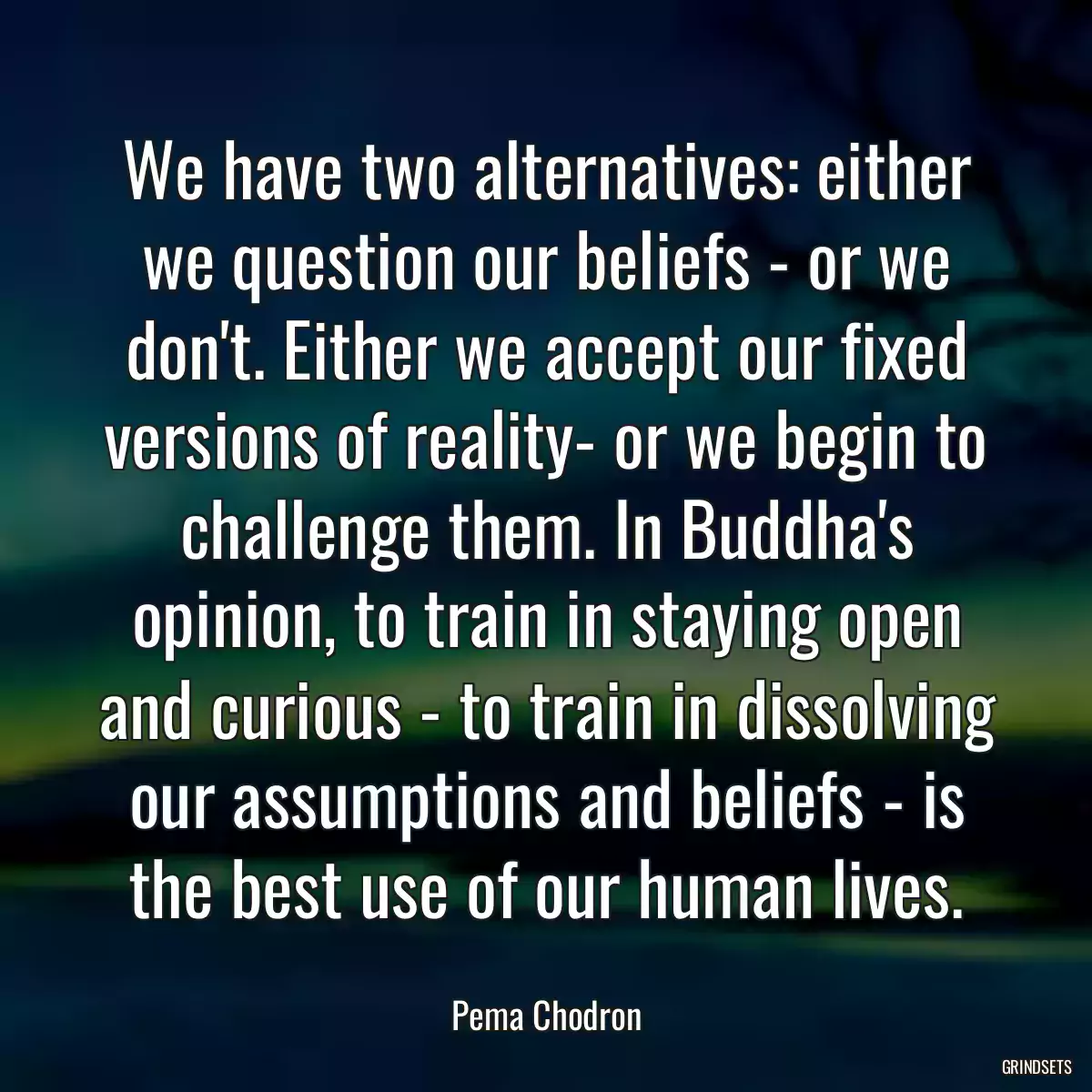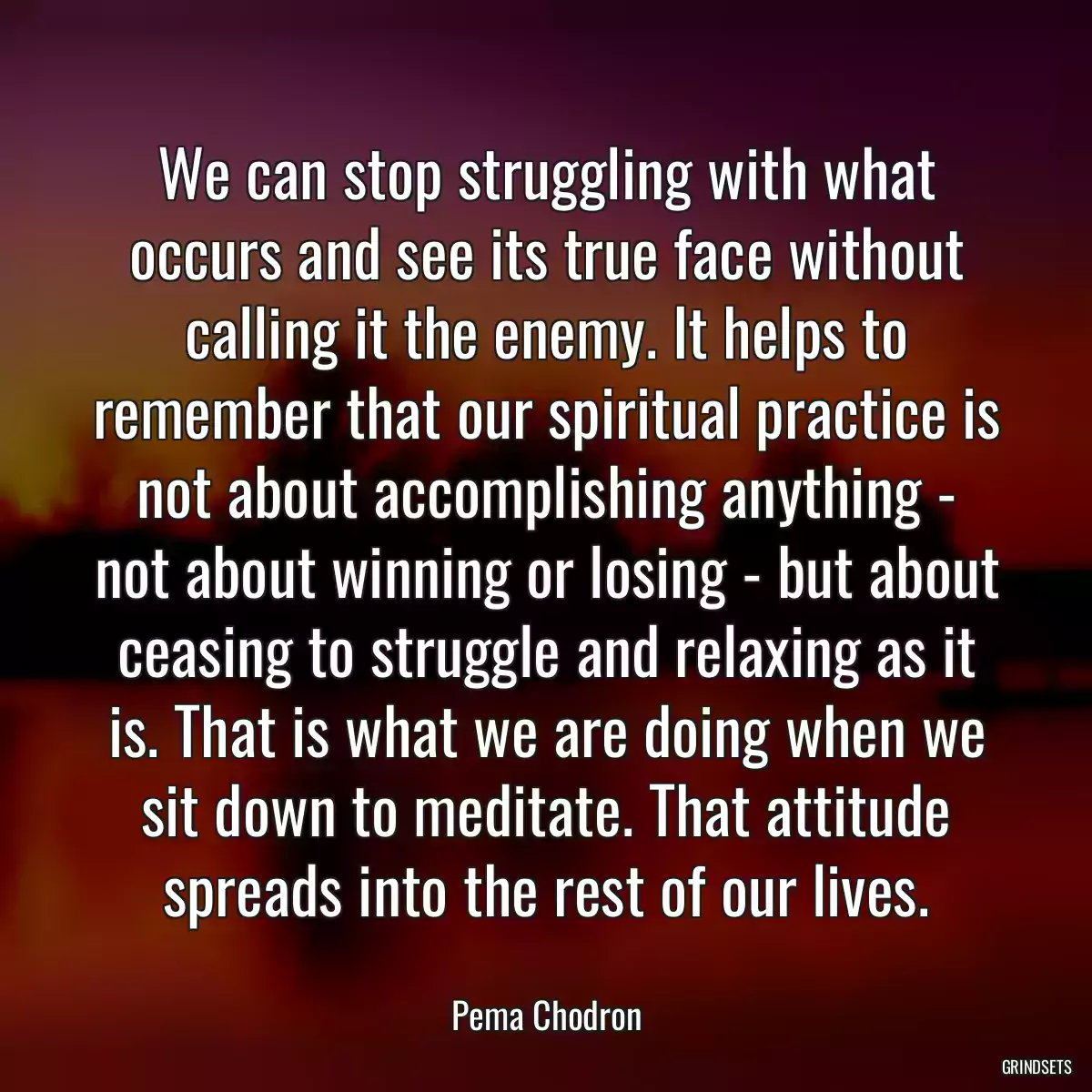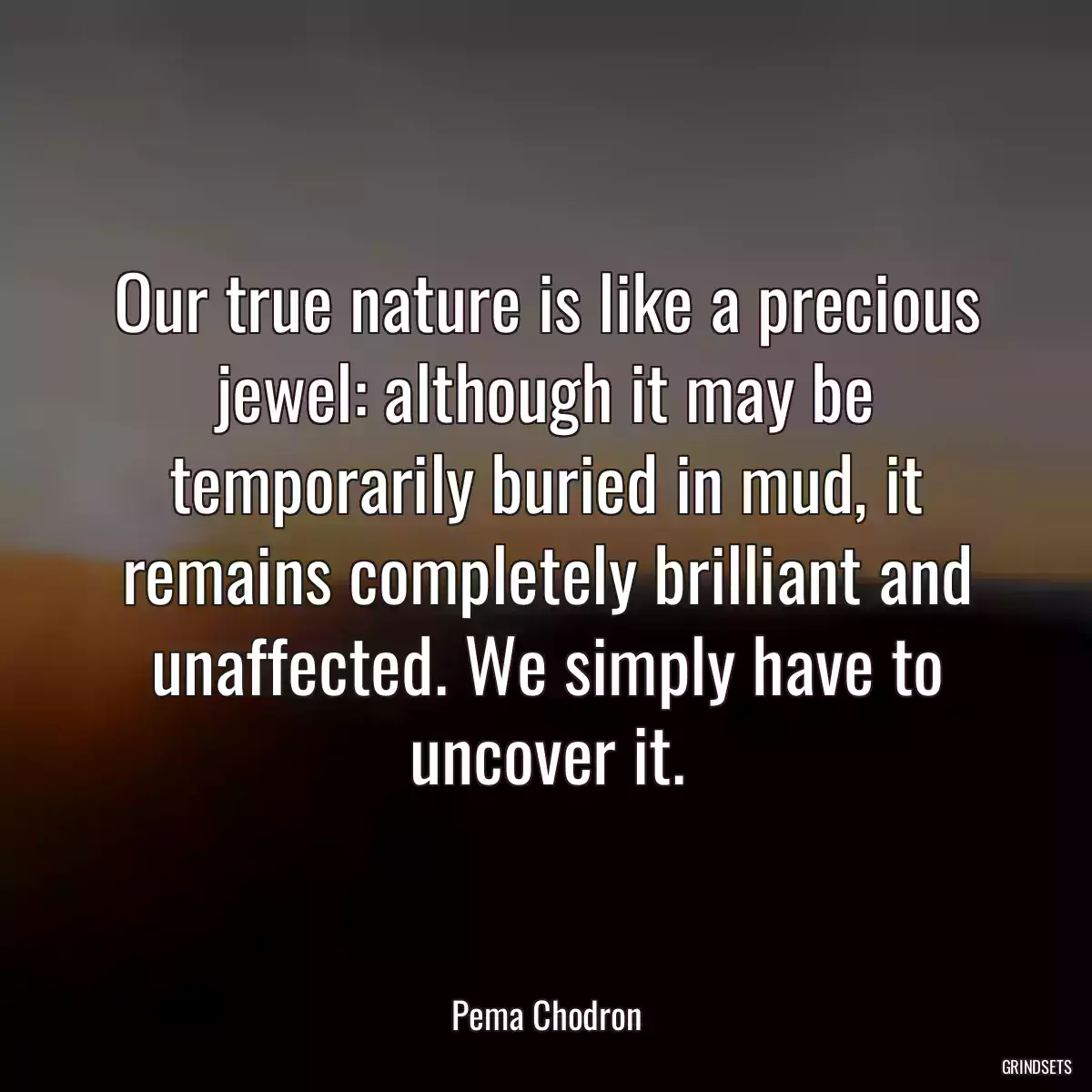
Quotes Pema Chödrön - page 3
Find dozens of Pema Chödrön with images to copy and share.

The mind is very wild. The human experience is full of unpredictability and paradox, joys and sorrows, successes and failures. We can't escape any of these experiences in the vast terrain of our existence. It is part of what makes life grand-and it is also why our minds take us on such a crazy ride. If we can train ourselves through meditation to be more open and more accepting toward the wild arc of our experience, if we can lean into the difficulties of life and the ride of our minds, we can become more settled and relaxed amid whatever life brings us.
That could be applied to whatever you feel. Maybe anger is your thing. You just go out of control and you see red, and the next thing you know you're yelling or throwing something or hitting someone. At that time, begin to accept the fact that that's "enraged buddha." If you feel jealous, that's "jealous buddha." If you have indigestion, that's "buddha with heartburn." If you're happy, "happy buddha"; if bored, "bored buddha." In other words, anything that you can experience or think is worthy of compassion; anything you could think or feel is worthy of appreciation.
Next, feel your heart, literally placing your hand on your chest if you find that helpful. This is a way of accepting yourself just as you are in that moment, a way of saying, "This is my experience right now, and it's okay." Then go into the next moment without any agenda.
You may also like
Meditation accepts us just as we are-in both our tantrums and our bad habits, in our love and commitments and happiness. It allows us to have a more flexible identity because we learn to accept ourselves and all of our human experience with more tenderness and openness. We learn to accept the present moment with an open heart. Every moment is incredibly unique and fresh, and when we drop into the moment, as meditation allows us to do, we learn how to truly taste this tender and mysterious life that we share together.
Just pausing for two to three breaths is a perfect way to stay present. This is a good use of our life. Indeed, it is an excellent, joyful use of our life. Instead of getting better and better at avoiding, we can learn to accept the present moment as if we had invited it, and work with it instead of against it, making it our ally rather than our enemy.
Some of us can accept others right where they are a lot more easily than we can accept ourselves. We feel that compassion is reserved for someone else, and it never occurs to us to feel it for ourselves. My experience is that by practicing without 'shoulds,' we gradually discover our wakefulness and our confidence. Gradually, without any agenda except to be honest and kind, we assume responsibility for being here in this unpredictable world, in this unique moment, in this precious human body.
Impermanence is a principle of harmony. When we don't struggle against it, we are in harmony with reality.
By not knowing, not hoping to know and not acting like we know what's happening, we begin to access our inner strength.

We can stop struggling with what occurs and see its true face without calling it the enemy. It helps to remember that our spiritual practice is not about accomplishing anything - not about winning or losing - but about ceasing to struggle and relaxing as it is. That is what we are doing when we sit down to meditate. That attitude spreads into the rest of our lives.
As Buddhism moved to the West, one of the big characteristics was the strong place of women. That didn't exist in the countries of origin. It's just a sign of our culture.
As Buddhism moved from one culture to another, it always adapted.
Instead of asking ourselves, 'How can I find security and happiness?' we could ask ourselves, 'Can I touch the center of my pain? Can I sit with suffering, both yours and mine, without trying to make it go away? Can I stay present to the ache of loss or disgrace-disapp ointment in all its many forms-and let it open me?' This is the trick.
It's also helpful to realize that this very body that we have, that's sitting right here right now... with its aches and it pleasures... is exactly what we need to be fully human, fully awake, fully alive.
Being fully present isn’t something that happens once and then you have achieved it; it’s being awake to the ebb and flow and movement and creation of life, being alive to the process of life itself.
Meditation is not about getting out of ourselves or achieving something better. It is about getting in touch with what you already are.
Don't worry about achieving. Don't worry about perfection. Just be there each moment as best you can. When you realize you've wandered off again, simply very lightly acknowledge that. This light touch is the golden key to reuniting with our openness.
Don’t get caught up in hopes of what you’ll achieve and how good your situation will be some day in the future. What you do right now is what matters.
You may also like

We spend all our energy and waste our lives trying to re-create these zones of safety, which are always falling apart. That's the essence of samsara - the cycle of suffering that comes from continuing to seek happiness in all the wrong places.